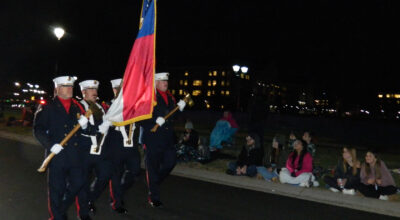Rowan commissioners appeal ruling on prayer
Published 12:20 am Wednesday, July 29, 2015
Rowan County commissioners are asking for a chance to argue their case for prayer before board meetings in front of the U.S. Fourth Circuit Court of Appeals.
As expected, the Rowan County Board of Commissioners filed an appeal to a federal judge’s May ruling that their practice of opening meetings with prayer violates the constitutional ban on government endorsing a particular religion.
Commissioners voted unanimously last month to appeal the ruling. The brief was filed Monday in Richmond, Va., by Allyson Ho, a Dallas attorney working with the Texas-based Liberty Institute.
Rowan County residents Nan Lund, Robert Voelker and Lisa Montag-Siegel filed suit against the county in 2013. The American Civil Liberties Union represented the residents in the action, which challenged the longstanding practice of a county commissioner delivering an invocation before each meeting.
The plaintiffs looked at those prayers between 2007 and 2013 and argued that 97 percent were specific to one religion — Christianity.
U.S. District Court Judge James Beaty agreed, ruling in May that Rowan commissioners created a “coercive environment” and violated the Establishment Clause of the Constitution.
Commissioners had garnered hope from a U.S. Supreme Court ruling that found prayers delivered by invited clergy in the town of Greece, N.Y., to be constitutional, even though they were heavily sectarian. The court found it to be a continuation of the tradition of solemnizing government proceedings with prayer, a practice upheld in a 1983 case involving the Nebraska state senate.
Beaty, however, wrote in his decision that town of Greece’s requirement that its prayer policy be non-discriminant — even though most of its local clergy are Christian — “was one of the characteristics key to the constitutionality” of its practice. In Rowan, he wrote, “When all faiths but those of the five elected commissioners are excluded, the policy inherently discriminates.”
Beaty went on to say the practice in Rowan does not represent the tradition of solemnizing government proceedings with prayer because commissioners “are the solely eligible prayer-givers and provide prayers according to their personal faiths. … The prayers are thus effectively being delivered by the government itself.”
In the appeal, Ho contends that Beaty got it wrong. She argues the original complaint against Rowan commissioners focused on the content of their prayers, not their office.
“Once the Supreme Court decided Greece, this should have been an easy case to resolve in the County’s favor. Yet the district court’s contrary decision—which effectively holds that the Constitution bars the commissioners, simply because they are commissioners, from offering prayers to solemnize their meetings unless they censor those prayers to remove any ‘overwhelmingly Christian’ content—does not merely misread Greece, but overrules it,” Ho wrote.
“The county commissioners’ opening prayers are part of the tradition of legislative prayer affirmed in (earlier decisions in Nebraska) and Greece, and the district court’s contrary judgment should be reversed,” Ho wrote. “Any other result requires the banning of prayer proclamations by all elected officials, including mayors, governors, and the President of the United States.”
The county requests oral arguments, Ho writes, because they “would be helpful to the court in resolving the important constitutional issues raised in this appeal that have serious implications far beyond the parties themselves.”
After the commissioners voted in June to appeal the Beaty’s ruling, ACLU Legal Director Chris Brook said in statement the organization would “continue to make our arguments in court in order to ensure that public meetings in Rowan County strive to be welcoming to all members of the community.”
Beaty ruled that Rowan County must pay the plaintiffs $1 in damages as they requested in their initial complaint and that the plaintiffs can pursue attorney’s fees and costs from the county. Commissioners heard at the June meeting the county would have to pay a $500 fee to file the appeal, but would incur no additional legal fees while the case is ongoing. If the board loses, it could still face the possibility of paying attorney fees for the plaintiffs.
Ho, the Liberty Institute, The Gibbs Law Firm and Alliance Defending Freedom represent Rowan County on the appeal.





